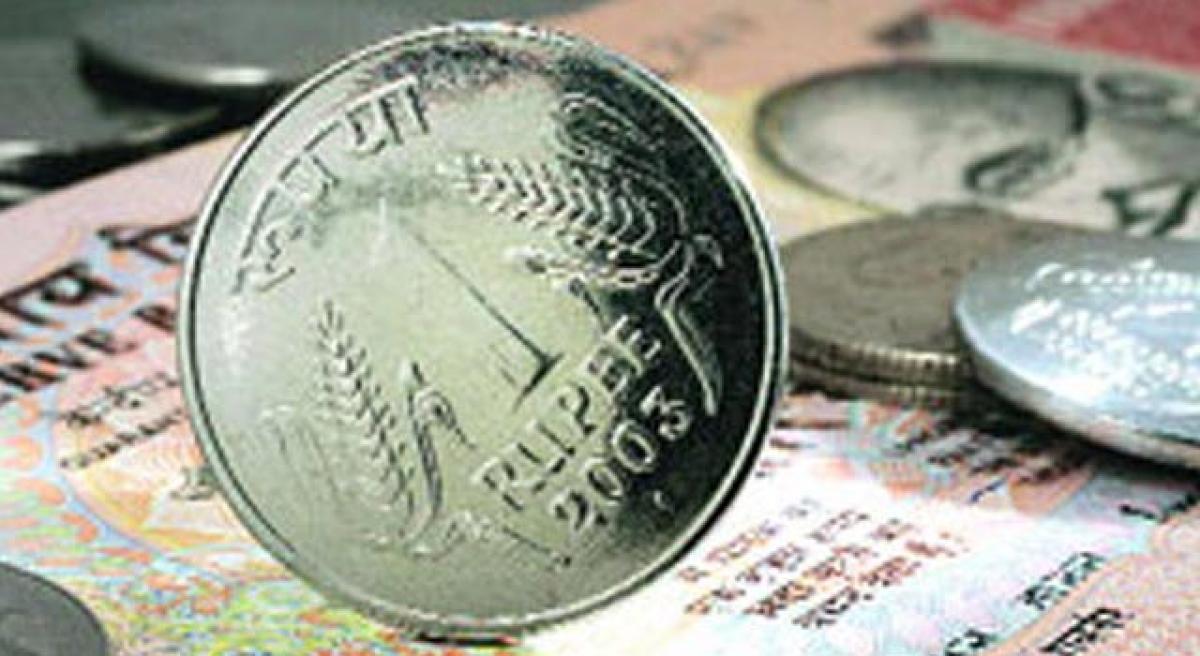Live
- Not easy for former CM in Vokkaliga strong hold
- Guntur: Nadendla, Dhulipala, Kasu, others file nominations
- Bangalore North: Prof. Rajeev Gowda vs Shobha Karandlaje
- Bangalore Rural: DK Suresh vs Dr Manjunath
- Chevireddy Mohit Reddy's Nomination Process Evokes Massive Support in Chandragiri Constituency
- Bangalore Central: PC Mohan vs Mansoor Ali Khan
- Three key strategies for parents to sail through the turbulent waters of adolescence
- JSP candidate Tangella files nomination papers
- And now for the people’s verdict…
- Key leaders of the Bharatiya Janata Party meet with TDP Chief Nara Chandrababu Naidu
Just In

Earlier separate Ministries for Small Scale Industries & Agro and Rural Industries (SSI&A&RI) and Heavy Industries and Public Enterprises (HI&PE) were created in October, 1999.
The Department of Industrial Policy & Promotion was established in 1995 and has been reconstituted in the year 2000 with the merger of the Department of Industrial Development.
Earlier separate Ministries for Small Scale Industries & Agro and Rural Industries (SSI&A&RI) and Heavy Industries and Public Enterprises (HI&PE) were created in October, 1999.
With progressive liberalisation of the Indian economy, initiated in July 1991, there has been a consistent shift in the role and functions of this Department.
From regulation and administration of the industrial sector, the role of the Department has been transformed into facilitating investment and technology flows and monitoring industrial development in the liberalised environment.
Department of Industrial Policy & Promotion is responsible for formulation and implementation of promotional and evelopmental measures for growth of the industrial sector, keeping in view the national priorities and socio-economic objectives.
While individual Administrative Ministries look after the production, distribution, development and planning aspects of specific industries allocated to them, Department of Industrial Policy & Promotion is responsible for the overall Industrial Policy.
Department of Industrial Policy and Promotion monitors the industrial growth and production, in general, and selected industrial sectors, such as cement, paper and pulp, leather, tyre and rubber, light electrical industries, consumer goods, consumer durables, light machine tools, light industrial machinery, light engineering industries etc., in particular.
Appropriate interventions are made on the basis of policy inputs generated by monitoring and periodic review of the industrial sector.
The Department studies, assesses and forecasts the need for technological development in specific industrial sectors. On this basis, it plans for modernization and technological upgradation of the Indian industry so that, it keeps pace with the international developments in industrial technology on a continuing basis.
The Department is also responsible for facilitating and increasing the FDI inflow in the country. Foreign Investment Promotion Board (FIPB), now located in Department of Economic Affairs, Ministry of Finance, provides a time bound, transparent and pro-active FDI regime for approval of FDI investment proposals.
The Department also plays a pro-active role in resolution of the problems faced by foreign investors in implementation of their projects through Foreign Investment Implementation Authority (FIIA), which interacts directly with the Ministry/State Government concerned.
The Department is responsible for encouraging acquisition of technological capability in various sectors of the industry through liberal foreign technology collaboration regime.
Foreign technology induction is facilitated both through FDI and through Foreign Technology Collaboration (FTC) agreement. FTC agreements are approved either through the automatic route under the delegated power exercised by the RBI or by the Government
Shanta Kumar Committee on Restructuring Of FCI
The High Level Committee (HLC) for Restructuring of Food Corporation of India (FCI) chaired by Shanta Kumar has submitted its report to the Prime Minister Narendra Modi.
Some Recommendations of Shanta Kumar Committee
On procurement related issues: FCI should hand over all procurement operations of wheat, paddy and rice to Andhra Pradesh, Chhattisgarh, Haryana, Madhya Pradesh, Odisha and Punjab as they have sufficient experience and reasonable infrastructure for procurement. FCI procurement should focus on eastern belt, where farmers do not get minimum support price.
On stocking and movement related issues: FCI should outsource its stocking operations to various agencies such as Central Warehousing Corporation (CWC), State Warehousing Corporation (SWC), Private Sector under Private Entrepreneur Guarantee (PEG) scheme.
It should be done on competitive bidding basis, inviting various stakeholders and creating competition to bring down costs of storage. Movement of grains should be containerized in order to reduce transit losses. While, railways should have faster turn-around-time by having more mechanized facilities.
NFSA and PDS related issues Restructuring the National Food Security Act (NFSA) by virtually diluting its scope and coverage from 67 per cent of population to about 40 per cent population. In order to curtail leakages in PDS, government should defer implementation of NFSA in states that have not done end to end computerization.
End to end computerization: It recommends end to end computerization of the entire food management system, starting from procurement from farmers, to stocking, movement and finally distribution through PDS. It will help for real time basis monitoring in order to curb leakages.
Background
In August 2014, Union government had set up 8 members High Level Committee (HLC) on FCI restructuring. It was restructuring chaired by Shanta Kumar.Other members are: FCI Chairman-cum-Managing Director C Viswanath, Electronic and IT Secretary Ram Sewak Sharma, Former Chairman of Commission for Agricultural Costs and Prices (CACP) Ashok Gulati,
Chief Secretaries of Punjab and Chhattisgarh; and Academicians G Raghuram and Gunmadi Nancharaiah of IIM-Ahmedabad.(The writer is a senior civil servant)

© 2024 Hyderabad Media House Limited/The Hans India. All rights reserved. Powered by hocalwire.com







